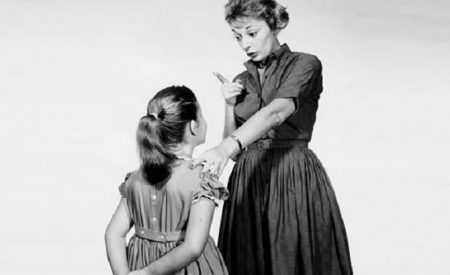Can’t Get That Nagging Voice Out Of Your Head? But, Oh, How You Will Miss It When She’s Gone.
We grew up with that voice of hers nagging us to clean our room, or unplug our curling iron, or re-wash the dishes—properly this time. She had advice on everything from make-up, “Take off the mascara, pinch your cheeks,”—to wearing clothes, “Start with one smart piece, then accessorize, the rest can be bought from Penney’s.” Mom-isms.
We’ve all got them stuck in our head, rolling around like loose marbles on a pinball machine until, before you know it, one drops to the finish line and comes shooting out of our mouths.
When I find myself in states of heightened stress, I hear her famous words heaved along with my exasperated sigh, “Oh my goodness gracious me, oh my.” It usually comes attached to the times when my two-inch binder filled with the lesson plans for this month spills across the floor. What’s funny to me is the look of amazement on my students’ faces. They act like they have never heard such a term before, especially not coming from someone who looks so young and hip, of which I keep reminding them, I am certainly neither.
“I never met a person I didn’t like.” And the explanation for this is because “it’s awfully hard to dislike someone who likes you, that’s why I like everybody.” She was sure savvy.
Her positive mental attitude came in this soundbite of encouragement, “You never know what’s around the corner and it just might turn out to be something pretty good.”
Of course, the famous one that I heard more than I cared to in my surly teen years, “Don’t cut off your nose to spite your face,” never made sense to me, but these were the Mom-isms with which I was raised.
She had a repertoire for any question.
If I picked the movie that would probably be more to my liking than hers, I could always count on a reply of, “Sure, I’m good-natured.”
Anything I ever posed that required more serious thinking was invariably met with a supportive, “Why not?” I loved that my mom was amiable in almost all situations.
For the times when she would put her foot down, there would be no mistaking it because she bellowed, “I’m putting my foot down!” I can’t imagine I would have as much success if I borrowed this remark for my own use today. But it does make me recall with fondness the times when she emphatically tried to win some point with child or father.
Since her death, I can’t seem to get her voice out of my head. Her Mom-isms have seeped in so deeply, I feel like she is in my backyard calling me outside to “get some Vitamin D for twenty minutes.”
I can practically see her in my kitchen, peeling an orange, or a cutie, saying, “I’m having my citrus for the day.”
Anytime I ever felt tired from the exhaustion of life, I would hear, “I believe in naps,” as she would encourage me to lie down.
For the times that something troublesome would rear its head, she would be sure to repeat as often as needed, “I believe in positive thinking.” She sure did.
“Suit yourself,” felt more like she was going along with it under duress.
The one that bears repeating is the one I aspire to use more often, “I’m agreeable.”
This is what made her so easy to get along with and oh, how I miss the face, the shrug, and the endearing smile that came with it.
Blog question: What are the Mom-isms you will remember the most long after she is gone?






